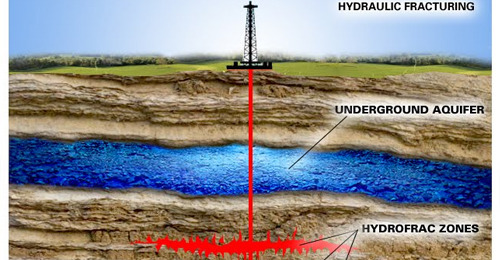
A few days ago, my fellow SINner Smilodon took issue with the Texas governor for preventing citizens to vote to ban fracking. I won’t defend a Republican or a hypocrite politician, but I do want to question the merits on which some people pretend to ban fracking.
So, what is fracking?
Fracking, or hydraulic fracturing, is the process of fracturing rock with pressurized liquids. Although it seems an evil new technology, fracking was actually born in 1947 and had its first successful commercial applications in 1949.
And what’s new?
Since 1949, fracking has been used as a technique in oil and natural gas wells, but it was not until 1997 that we learned we could use it to extract shale oil and natural gas that, up until then, were impossible to exploit.
Does fracking entail any risk?
Of course, like everything else — there are no 100% safe activities; leaving the house, driving a car, eating, swimming, having surgery and many other activities and technologies involve risk levels to be administered. One must know how to use the precautionary principle.
Although fracking is not a drilling technology, it takes place after the well has been drilled, cased and cemented. The implementation of any of these preliminary steps must be done under the strictest regulations, or accidents could occur (as with any other technology of extraction).
Contrary to what evil tongues say, fracking doesn’t involve pumping massive amounts of dangerous chemicals into the ground. Actually, fracking compounds are 98% water and 2% of various chemical including antibacterial agents —used in disinfectants—, gelling agents —used in ice cream—, friction reducers —used in cosmetics— and surfactants —used in laundry detergents—.
Water
The myth also says that fracking poisons drinking water aquifers, however, hydraulic fracturing occurs 6000 feet underground, far, far away from sources of underground drinking water. As mentioned above, the phases of drilling the well are those that, if done carelessly and without a clear adherence to strict regulations, could pollute aquifers, but fracking per se could not.
Some have even tried to to blame fracking of polluting aquifers with methane. However, the evidence shows that methane in groundwater is not caused by fracking, but rather comes from decomposition of organic matter in surface sediments and peat bogs.
Other objections claim that fracking wastes a lot of water. Fortunately, water is reused in the process and, moreover, now fracking can be done with seawater and with no water at all.
Putting it in perspective, among others, the construction, electricity, agriculture, textiles, food and beverages industries use far more water than fracking. Nobody in their right mind would seek to ban these activities.
Earthquake activity
This seems to be the point that worries Smilodon the most — I would ask him to consider the following.
In 2012 the National Research Council published a study indicating that in nearly 90 years of follow up, it has been shown that human activity has triggered 154 significant earthquakes —most of them moderate or small— due to the extraction of oil and gas, construction of dams in rivers and wastewater injection.
Of those 154 earthquakes, only two have been caused by fracking, one of 2.8 magnitude in Oklahoma and another one of 2.3 magnitude in England. In those earthquakes no one has died and, when compared to the almost 14.500 earthquakes of 4 magnitude or more that occur worldwide each year, it doesn’t seem a risk worth banning an entire technology.
And that’s it — that’s all there is to know about fracking.
Now, I’d like to say I have the utmost respect for Smilodon, and I like his posts on evolution and GMOs, and that’s exactly what puzzles me the most about his stance on this one topic: he is aware of anti-science and Luddite tactics, so it strikes me as odd he is so sure about the so-called dangers of fracking — I think we have good and strong evidence to put those myths to sleep once and for all, but may be I’m wrong and it would be nice if he could tell me why he thinks what he thinks.

